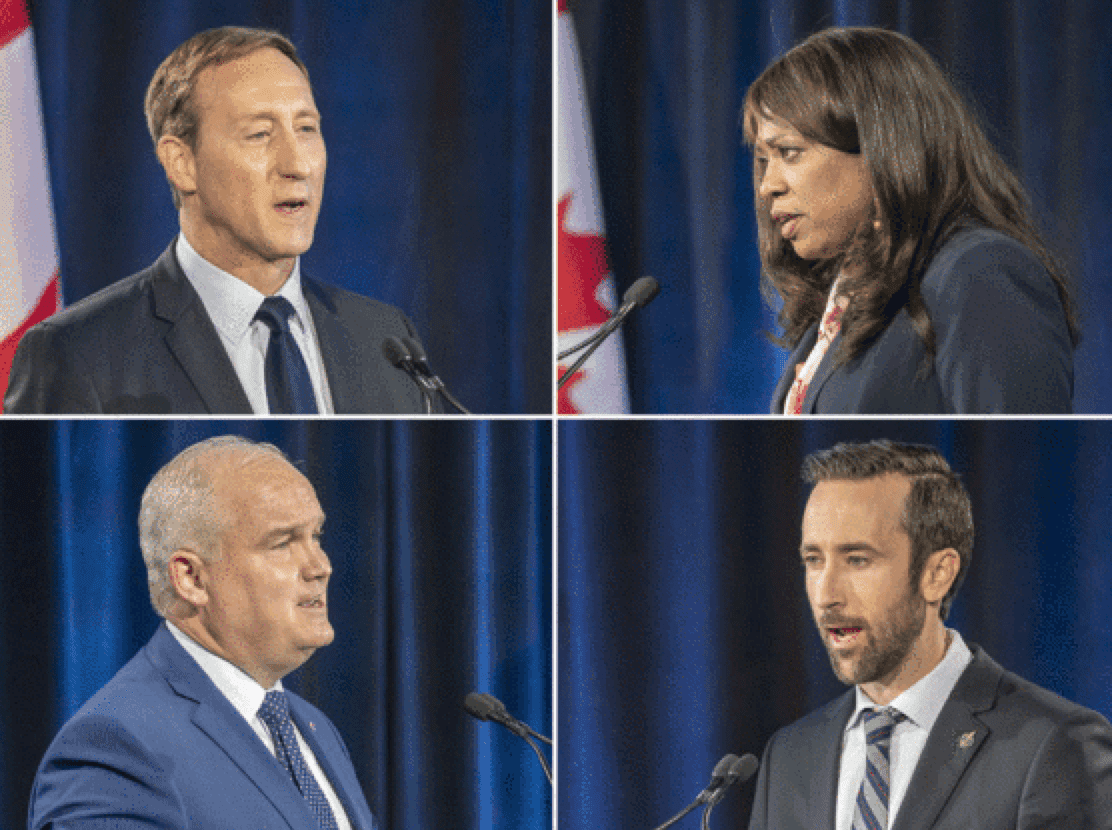As Canada, and indeed, much of the world, continues to battle the ongoing COVID-19 pandemic, it is often overlooked that the country is in the midst of not one, but two national health crises.
After appearing to slowly recede in 2019, the opioid epidemic has resurged, particularly in western Canada, and is causing more death and disarray than ever before.
In British Columbia, the province hit hardest by the crisis, opioid-related fatalities have skyrocketed.
In May, provincial health officials reported that 171 individuals had died from illicit-drug overdoses.
In June, the number was even higher, with 175 people reportedly having lost their lives due to opioids. If these numbers do not sound alarming, consider that at no point in B.C.'s long struggle against opioids has it ever registered so many deaths in a single month.
In fact, so great is the total number of opioid-related deaths, that fatalities in June alone now almost surpasses all four months of recorded COVID-19 deaths in B.C.
Similar trends have been witnessed in neighboring Alberta.
While an up-to-date registry of opioid-related deaths in the province has yet to be released, there nonetheless has been some disturbing trends in opioid fatalities in the province.
Back in March, Alberta witnessed a spike of 60 opioid-related deaths, up from 43 in January and 39 in February. That's an average of 1.6 people dying every day from opioid poisoning. If these numbers continue to rise, they too will far surpass total COVID-19 deaths in the province, if they have not done so already.
Not only this, but emergency medical calls related to illicit drug overdoses have tripled in recent weeks, further setting the stage for an expected spike in opioid-related deaths this summer.
Amid such a crisis, it goes without saying that our elected officials should be responding measuredly, exercising both due diligence and compassion, to ensure the safety of their fellow citizens from further harm. A big part of this means prioritizing sensible public policy over any political or electoral considerations that may be at play.
Unfortunately, not all our leaders have lived up to these expectations.
In the years since the 2015 election, the Liberal government of Justin Trudeau has taken some significant steps to address the opioid crisis.
This has included considerable efforts to reduce stigma, expand opioid substitution treatments, and loosen up regulatory restrictions to allow for the pop-up of dozens of supervised consumption sites; sites, which, by the way, have the broad backing of the medical community for their role in preventing overdose deaths and reducing the spread of infectious diseases, amongst other benefits.
For this, the federal government deserves credit.
Alas, the Liberals have not taken the long overdue step of decriminalizing the simple possession of drugs (a move long advocated by health officials to help counter the epidemic) even as they have clamored on about the opioid crisis being "the greatest public health emergency" in generations.
Evidently, decriminalization is just a step too far for the risk-averse Liberals, fearful of spooking a wary electorate.
Other political leaders have been even more disappointing in confronting the crisis.
One need only look to Doug Ford and his Progressive Conservative government in Ontario.
Whilst in office, Ford has furthered his agenda for austerity by reducing mental health spending. He has also placed limitations on the number of supervised consumption sites, further straining aid for Canadians struggling with addiction.
Arguably, though, the greatest villain throughout this whole sage has been Alberta's UCP government, under the leadership (or lack thereof) of Premier Jason Kenney.
Earlier this year, Kenney's government slashed funding for a last-resort opioid treatment program, something which his critics, both political and from the medical community, have decried as an attack on those most vulnerable in the province.
He also spearheaded a much-derided government report outlining the flaws of supervised consumption sites, even as countless health experts have lined up to denounce the report's methodology and evident bias as an affront to credible scientific research.
Now, however, Kenney has outdone himself.
His government recently cut funding to Lethbridge's only supervised consumption site, a move which leaves one of Canada's hardest hit communities depleted of the services it requires to assist opioid addicts.
True, the decision to defund ARCHES, the organization in charge of the consumption site, did not come out of nowhere. An audit conducted by Deloitte found that ARCHES was on the hook for $1.6 million of unaccounted public money.
Yet, instead of taking over management of the safe-consumption site and ensuring the continuation of services, Kenney made the unconscionable decision to pull government funding, leaving those most vulnerable in Lethbridge at even greater risk of overdose and death.
It is a shame, because, despite its poor bookkeeping, ARCHES has done some important work in addressing the opioid crisis in southern Alberta.
One report showed that it had a 100 per cent success rate at reversing overdoses. Furthermore, the organization provides a whole host of other much-needed services, including "emergency medical care, education on the harms of drug use, and referrals to other social services like counselling" to help save lives.
Not that any of this has stopped Kenney's ideological crusade against ARCHES, or more broadly, against supervised consumption sites, and other harm reduction practices. He remains undeterred in his unholy quest, no matter the abundance of expert opinion against him, nor the escalating death toll.
With the opioid epidemic now more threatening than ever, it is long since time that all our politicians, and I do mean all, displayed the type of leadership required of them.
No longer, either, can we as engaged citizens, allow our elected officials to prioritize their own electoral machinations over the implementation of sound public policy; especially not when the lives of thousands of Canadians are at stake.
It is time that we all stepped up, listened to the experts, and finally tackled this crisis, once and for all.








